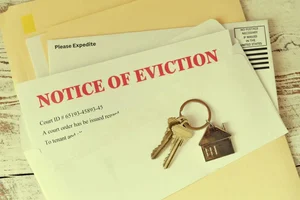All business owners will eventually have to deal with and manage mountains of paperwork, regardless of the size of their company. It will also be necessary for you to get several documents, including agreements and contracts, notarized at particular times. Obtaining legal counsel can be costly even if it’s necessary for operating a successful company. There are hundreds or even thousands of dollars involved in notarizing documents each year. Learn about 28 USC 1746, a U.S. Congress statute that will assist individuals and businesses in determining which papers require notarization and which do not, to save as much money as possible. If 28 USC 1746 is new to you, then this article will walk you through its details.
What Is 28 USC 1746?
The U.S. Congress passed 28 USC 1746, a statute that restricts the situations in which a notary would be required, after realizing the financial costs associated with notarizing a variety of papers for organizations and enterprises. Section 1746 provides an adequate substitute for any document or paperwork that needs to be backed up by a notarized statement unless it is a deposition, an oath of office, or an oath that needs to be taken before an official who isn’t a notary. The declaration must be made under penalty of perjury.
Under Penalty of Perjury, What Is a Declaration?
Certain documents are notarized for them to be enforceable and legally binding. Alternatively, you can also get a declaration under penalty of perjury under 28 USC 1746.
However, precisely what is it? A sworn statement acknowledging that the facts stated are true and correct to the best of the declarant’s knowledge is called a declaration made under penalty of perjury. It is also comparable to an affidavit, with the exception that a notary public is not required to witness and seal it.
You may have already encountered the declaration under penalty of perjury without realizing it if you have worked with a lot of documents in the past. Although they can take many different forms, the affiant frequently places the statement at the end of the document.
Examples:
- Under pain of perjury, I certify, affirm, or declare that the information above is true and accurate. carried out on (date).
- Under the penalties of perjury imposed by US law, I thus declare (or certify, verify, or assert) that the information above is accurate and truthful. carried out on (date).
In What Ways May 28 USC 1746 Help Your Company?
Managing a prosperous firm requires having a solid understanding of rules and regulations. It makes transaction processing easier for you and shields your company from noncompliance and illegal activity.
Regarding document management, you must become acquainted with 28 USC 1746. As was previously said, the purpose of this regulation is to establish standards regarding the appropriate times to have your documents notarized and the appropriate times to use a sworn declaration in its place. Specifically, how does it benefit your organization?
You can reduce the cost of legal services by using 28 USC 1746. It might be very expensive for your company to get all documents notarized when it is not required. The expenses for notarization cost an average business thousands of dollars. If you understand 28 USC 1746 in its entirety, you can reduce the cost by a quarter or perhaps half.
This method also eliminates the need to locate a notary public for document signings. You can optionally eliminate this step and just include the declaration under penalty of perjury for documents that don’t need a notary.
FAQs
What is USC 1746?
Cases involving Perjury—28 USC 1746 Declarations. Both Section 1621 and Section 1623(a) expressly cross-reference 28 U.S.C. § 1746. To subject certain unsworn declarations to the penalties of perjury, Congress added 18 U.S.C. § 1746 in 1976.
What is Texas’s 132.001 rule?
UNSWORN DECLARATION 132.001. (a) A written sworn declaration, verification, certification, oath, or affidavit required by statute or required by a rule, order, or requirement adopted as authorized by law may be substituted, except Subsection (b), by an unsworn declaration.
Where do I acquire a sworn declaration?
Firstly, get a copy of the sworn declaration form from the Bureau of Internal Revenue’s (BIR) official website. Provide correct personal information about yourself, including your full name, address, TIN, and phone number.
In the United States, what is the penalty for perjury?
Perjury is a felony in the United States, punishable by a maximum five-year prison term under the General Perjury Act. According to the California Penal Code, perjury that results in wrongful execution is punishable by death.
Conclusion
Before sending out any documents, it is crucial to review 28 USC 1746 to determine if notarization is necessary. You save money, work, and time by doing this. It is advisable to speak with legal counsel to determine which documents, if any, call for notarization and which, if free, call for a sworn statement.



